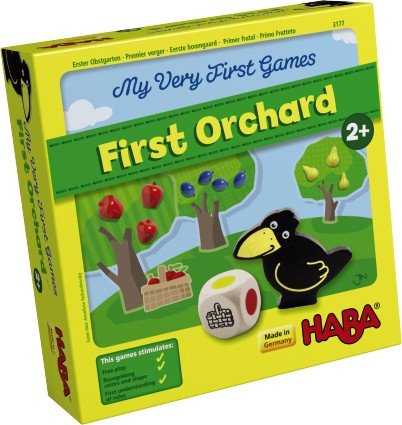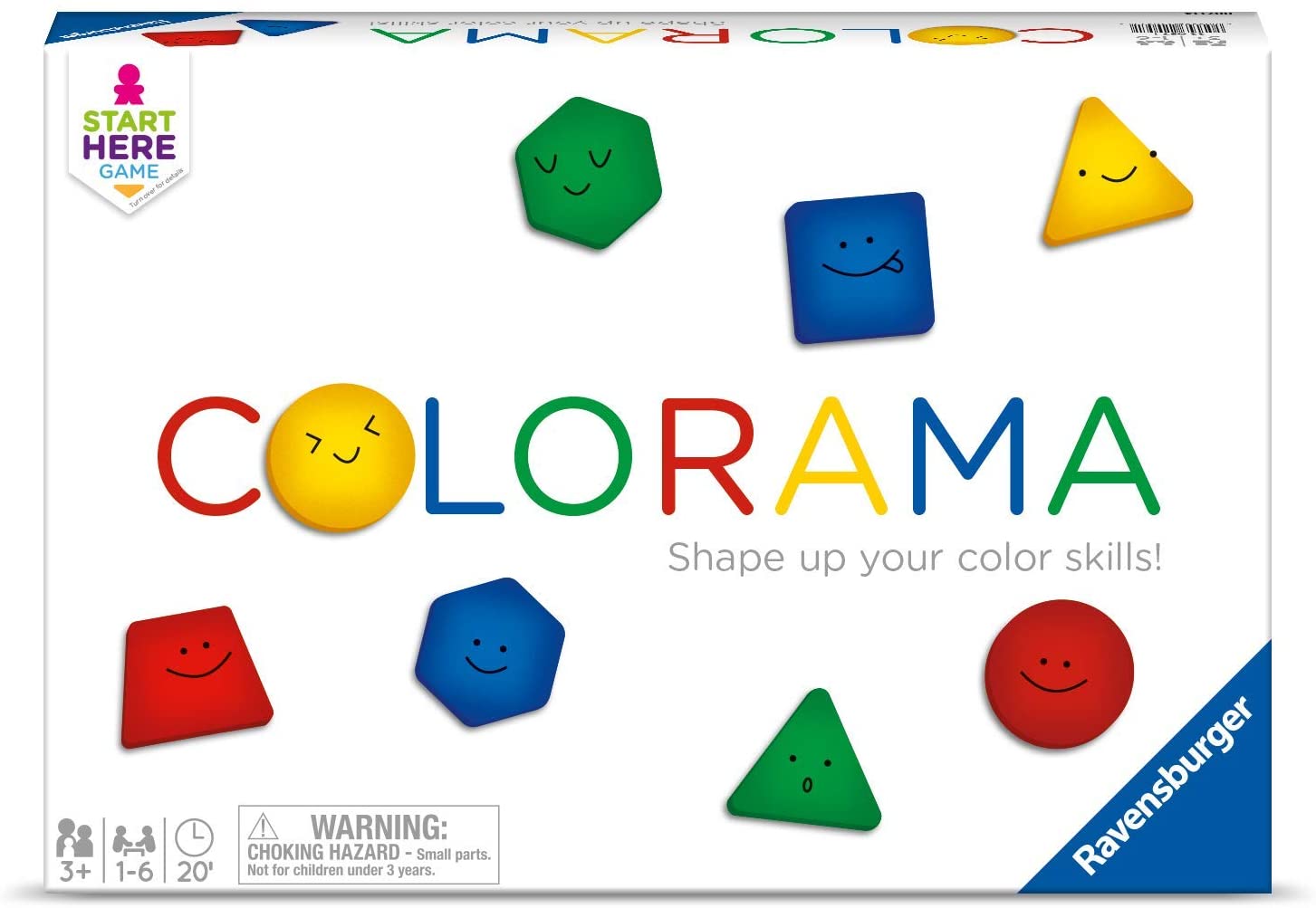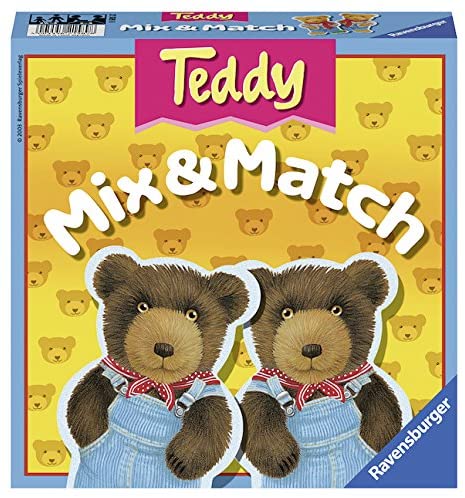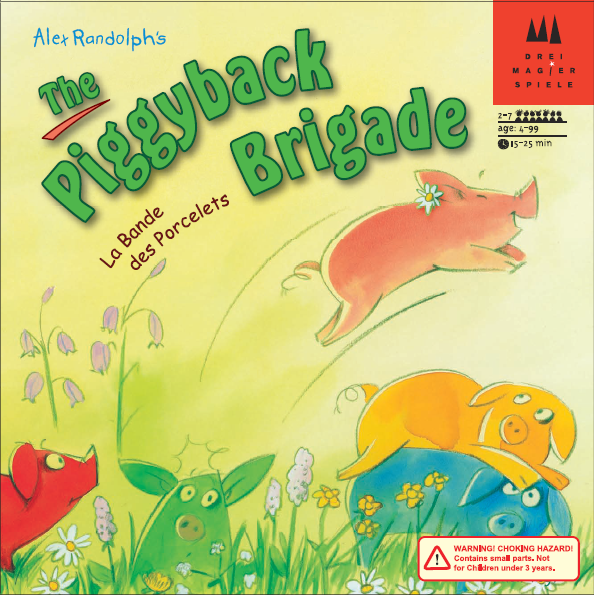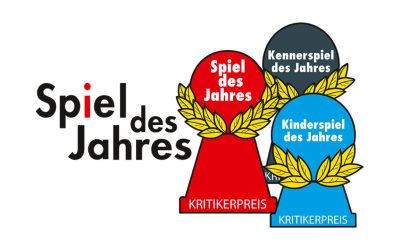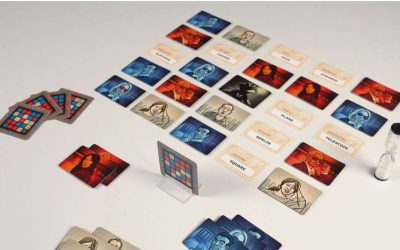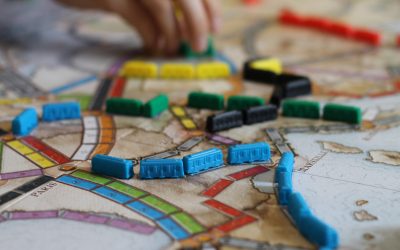Games for Pre-Schoolers
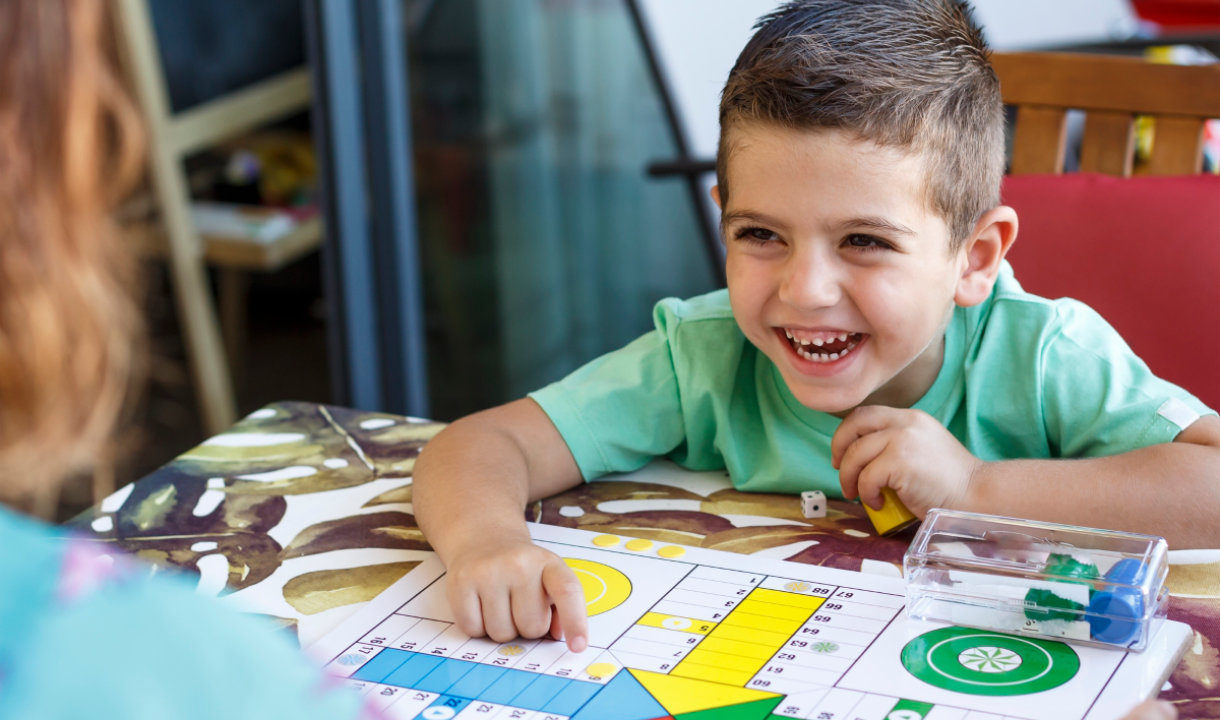
Playing board games can have any number of benefits for children…
It can help them to stimulate and develop academic, spacial and logical thinking skills. Furthermore, kids can practice social and emotional skills by playing with peers or family members. They can learn how to take turns, cooperate or to lose or win gracefully. All of this comes in addition to the most basic and important benefit: Having fun!
We know that every board game comes with a recommended age range on its box. When it comes to choosing a game for children, these numbers can be both, helpful and a little confusing at times. How do we know if a game is appropriate for a specific age? In my experience, there are roughly three age divisions when it comes to choosing a board game for kids that can be applied universally: Ages 8 and up, Ages 4 and up, or younger than age 4. Needless to say, a lot of this varies with the development of a specific child, but it can provide a good overall starting point. Let’s explore this a little further.
Most kids are able to play and comprehend family style games by the age of 8. The majority of popular mainstream titles like Carcassonne, Catan or Ticket to Ride will fall into that category. Time has shown that children are able to process more complex game mechanics at that stage of their development. For the ages between 4 and 8 we will find games that utilize the basic structure of a board game but offer slightly simpler mechanics. These are games that might offer cognitive or dextral aspects that are immersive and stimulating, but that lack some of the extra complexities of some more mature games. For that reason, many companies offer a simplified version of their family titles like ‘Ticket to Ride: First Journey’ or ‘Catan Junior.’
But what about games for pre-schoolers or toddlers? At an age of younger than 4 many children process games in a different way. They find it more challenging to sit still for a longer period of time and to follow rules that might be a little more involved. Luckily there are plenty of titles available that offer our youngest the social benefits of some quality time with their family. Some of them even start as young as ages 2 and up. This is often the time that kids can really start grasping basics like taking turns, rolling dice or moving pieces.
Most of these games feature simple ideas that focus on one specific mechanism, i.e., colour coordination or working together. They also commonly offer larger playing pieces that increase the tactile experience and make it easier to engage with the game. Of course, the real reward for the child is to focus on something non-virtual and tactile, while interacting with others in a meaningful and fun way. Playing games can ignite their imagination and can teach many useful skills like problem-solving and abstract thinking. And the best part is, that they can be fun for the adults as well.
If you are looking for some great board game ideas for a younger pre-school child, then here are some of my favourites.
FIRST ORCHARD
1-4 players, ages 2 and up
t’s time to pick the fruit in the orchard! But watch out for the pesky raven coming down the orchard path to eat it all up. Can you pick all the apples, plums, and pears before the raven arrives? A cooperative game that works on colors, taking turns, fine motor skills, and the concept of winning and losing. The beautiful and handy wooden pieces are also very suitable for free play and fostering better motor skills.
FRIENDS OF A FEATHER
2-4 players, ages 3 and up
Four little birds are missing their tail feathers and need help finding them. Add feathers to your bird each turn by drawing from the deck or trading away your unwanted ones to the nest. Score points at the end of the game based on your colorful collection. The player with the most points wins!
COLORAMA
1-6 players, ages 3 and up
Colored-shaped pieces are set up near the game board where all players can reach them. The youngest player begins by rolling the two dice. One die determines the color to be played the other determines the shape. After rolling the dice place the piece that matches onto the game board in the corresponding cut out piece. The game is over when all fields on the game board have been covered. Two other game variations are included in the rules. What do you learn? How to distinguish and name shapes and colors.
TEDDY MIX & MATCH
2-4 players, ages 3 and up
A great way to develop memory skills! Shuffle the teddy-shaped picture cards & lay them face down on the table. Players try to uncover the most matching pairs to win. The game features large, extra tick cards that are perfect for little hands to work with as they hunt for the pairs of bears.
PIGGYBACK BRIGADE
2-7 players, ages 4 and up
The merry trunk gang consists of seven multicolored piglets, who love nothing more than running through the meadows – on roads, which are so narrow that they cannot pass the other pigs – except, if they stand on top of one another! Players’ take turns rolling a special die numbering 1-4 and moves his pig based on the number they rolled. If you land on the same space as another pig you now move with the bottom piglets piggyback style. Once a player makes it to the end of the track, they are declared the winner.
Are you intrigued to try a new game with a pre-schooler? Here are my top suggestions:
‘Spiel Des Jahres’ Winners 2021
Arguably the most important event with regards to the world of board gaming is ‘Das Spiel,’...a fair that is held each October in the German city of Essen. Exhibitors and guests from all around the world gather for 4 days to present and try all of the new and exciting...
Word Guessing Games
The philosopher Friedrich Nietzsche once said:...“All I need is a sheet of paper and something to write with, and then I can turn the world upside down.” Even though I am almost certain that he did not say this with regards to board games, part of me wonders and...
The History of ‘Ticket to Ride’
What defines a great board game?...It is its theme, the accessibility and elegance of the rules, the design and production of the components, the depth of strategy, or the level of enjoyment one experiences when playing it? I believe it is a combination of all of...
